Against the backdrop of the ongoing Russia-Ukraine conflict, there is an increasing suspicion that Beijing would follow Moscow’s lead and attempt to conquer Taiwan militarily. Ukraine’s experience should instil a stronger sense of urgency in Taiwan regarding the need to overcome bureaucratic and partisan impediments to coalescing around a military plan that is fit for Taiwan’s security environment and resource restrictions. This is an opportunity for Taiwan’s current and future leaders to instil confidence in the country’s future.
Russia’s intimidation of Ukraine has prompted media commentators to cast doubt on the United States’ power and reliability. This is increasing suspicion that Beijing would follow Moscow’s lead and attempt to conquer Taiwan militarily. Such cursory analysis should not instil fear in the Taiwanese populace or attract the attention of Taiwan’s leaders. To be sure, there are lessons to be drawn for Taiwan’s leaders from the Ukraine crisis, but these are not them.
President Vladimir Putin is solely responsible for the Ukraine issue. Russia is the aggressor and aggravating factor in the escalation of hostilities. Having said that, the crisis’s contours were predictable and expected. While serving as the United States’ ambassador to Russia from 2005 to 2008, the current CIA Director Bill Burns cautioned that granting Ukraine a path to NATO membership would be tantamount to “throwing down the strategic gauntlet.” Burns warned at the time that Russia would respond by meddling in Crimea and eastern Ukraine and gradually increasing its boldness in an attempt to keep Ukraine within Russia’s orbit. He reflected in his memoir, “The Back Channel,” that President George W. Bush’s decision to announce support for Ukraine’s future NATO membership at the 2008 Bucharest Summit put the US in the worst of both worlds — indulging Ukraine’s aspirations for NATO membership, a pledge that the outgoing Bush administration was incapable of fulfilling, while also reinforcing Putin’s view that the US was indifferent to his warning that sui generis sanctions would be imposed.
Also Read: Russia-Ukraine Crisis: The Impact on India
In the years afterwards, the US and European politicians have spoken strongly in support of Ukraine but have not backed up their words with deeds. As Russia’s invasion of Ukraine in 2014 demonstrated, Putin’s attempts to reclaim greater control over Ukraine’s future were thwarted by muscular rhetoric.

Taiwan’s first lesson from Ukraine’s growing crisis is that words alone cannot compensate for the hard work of boosting deterrence and resilience. Ukraine’s experience should instil a stronger sense of urgency in Taiwan regarding the need to overcome bureaucratic and partisan impediments to coalescing around a military plan that is fit for Taiwan’s security environment and resource restrictions. Given the vast resource disparity between Taiwan and China, it is implausible that Taiwan could defeat China in an attrition war. Rather than that, Taiwan’s deterrent will almost certainly need to be bolstered by focusing investments in military assets that target an invading force at its point of greatest vulnerability along Taiwan’s coastlines.
Ukraine’s experience should instil a stronger sense of urgency in Taiwan regarding the need to overcome bureaucratic and partisan impediments to coalescing around a military plan that is fit for Taiwan’s security environment.
Also Read: China’s South China Sea Claims Threaten India’s Economic and Geopolitical Interests
The second lesson is to filter out similarities between Ukraine’s security situation and that of Taiwan. Such parallels are unjustifiable in light of observable realities. Ukraine’s land border with Russia and Belarus makes it more vulnerable to Russian ground forces than Taiwan’s 100-mile-long moat makes it to the People’s Liberation Army. Taiwan is the ninth-largest commercial partner of the United States, ahead of India and France. Ukraine is currently ranked 67th. Taiwan is a critical component in global value chains. According to the International Monetary Fund, Ukraine’s GDP per capita ranks 135th in the world. Taiwan exemplifies a wealthy liberal democracy at its best. Ukraine is ranked 122 on Transparency International’s Corruption Perception Index, out of 180 countries. None of these facts support or justify Russian efforts to redraw national boundaries through the use of force. They merely emphasize the disparity between Taiwan and Ukraine.
This disparity is well acknowledged at the Biden administration’s top levels. According to a recent interview with national security adviser Jake Sullivan, explained, “the Taiwan Relations Act is a unique instrument — we don’t have it with other nations; we don’t have it with Ukraine — that expresses the United States’ commitment to support Taiwan in a variety of ways.”
US military engagement in Ukraine has already been ruled out by the Biden administration. One of their justifications for doing so is to maintain focus on Indo-Pacific threats. No security problem in the Indo-Pacific commands greater attention in Washington than in Taiwan.
Geostrategic adjustments frequently have unintended consequences. For instance, the Truman administration initially opted not to interfere in the Chinese civil war in order to protect Taiwan from an impending invasion by the Chinese Communist Party. Truman switched course with the outbreak of the Korean War and ordered the 7th Fleet to defend Taiwan. Chinese forces have not crossed the Taiwan Strait and landed on Taiwan since then.
You May Like: United States, NATO, and the Taliban: Analysis of the Politics
No security problem in the Indo-Pacific commands greater attention in Washington than in Taiwan.
Similarly, events in Ukraine may have unintended consequences. They might reinforce Taiwan’s deterrent position. If this is confirmed – a large if — Washington and Taipei would be advised to follow former President Theodore Roosevelt’s advice to “talk gently and carry a hefty stick.” This time necessitates steady, focused, disciplined, and cohesive measures to bolster Taiwan’s defensive capabilities, not loud talk about ideological conflicts or changes to America’s declared policy towards Taiwan.
Also Read: The Iran–China 25-years Deal: Where does it leave India?
All of this should be self-evident in the long run. To the extent that Putin attacked Ukraine in response to Washington’s disregard for Russian concerns about NATO expansion, it is not implausible that Beijing would feel similarly compelled—at some point in the future—to use force against Taiwan if Washington continues to deflect Chinese concerns about the erosion of the “One China” framework and to deny responsibility for cross-Strait tensions. If Putin retaliated against Ukraine after concluding that Moscow’s strategic interests were being ignored, Beijing may easily retaliate if it determines that its earlier understandings with Washington on the Taiwan issue are no longer valid. If that occurs, America will almost certainly be as taken aback and enraged by Beijing as it is today by Moscow. However, this should not come as a complete surprise. If Washington wants to avert a Taiwan Strait crisis, it should investigate ways to anticipate Beijing’s judgment that resorting to force is its only feasible alternative.
Above all, this is an opportunity for Taiwan’s current and future leaders to instil confidence in the country’s future. Beijing’s objective is to instil a sense of doom in Taiwan. Nothing could be a more potent deterrent than progress towards reunifying Taiwan’s political system and ensuring its national security.
Disclaimer: The views expressed in this article are of the author solely. TheRise.co.in neither endorses nor is responsible for them.
About the author
Neeraj Singh Manhas is a Director of Research, Indo-Pacific Consortium, at Raisina House, New Delhi. He has authored four books under his name and has various research interests covering India-China in the Indian Ocean, India's maritime securities, and Indo-Pacific studies.

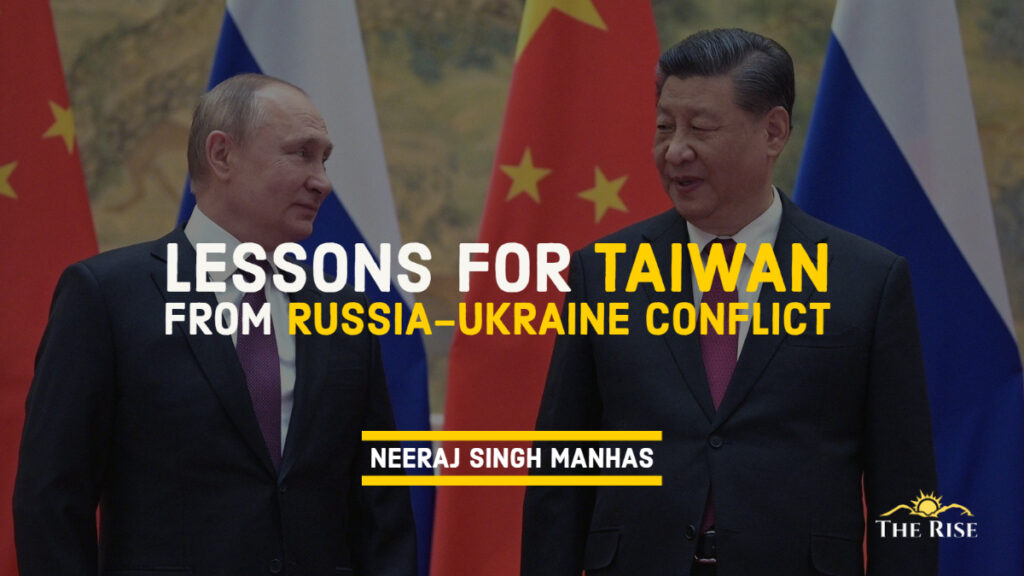

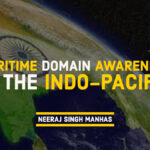
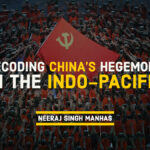
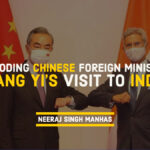
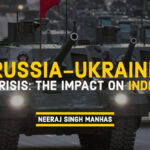
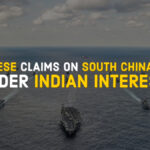



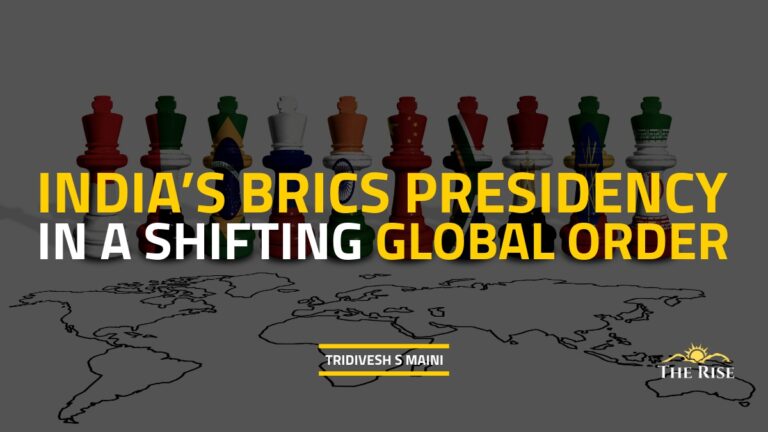



Pingback: Ukraine Crisis and Energy Security in India - TheRise.co.in
Pingback: Russia-Ukraine Crisis: A Big Boost for Iran? - TheRise.co.in
Pingback: Economic Implications of Russia-Ukraine Crisis - TheRise.co.in
Pingback: Russia - Ukraine Conflict and Defence Sector: Implications for India
Pingback: Catastrophic Consequences of the Conflict - TheRise.co.in
Pingback: Crossing China's Red Line: Pelosi visiting Taiwan - TheRise.co.in
Pingback: Fallout of the Pelosi Visit to Taiwan - TheRise.co.in